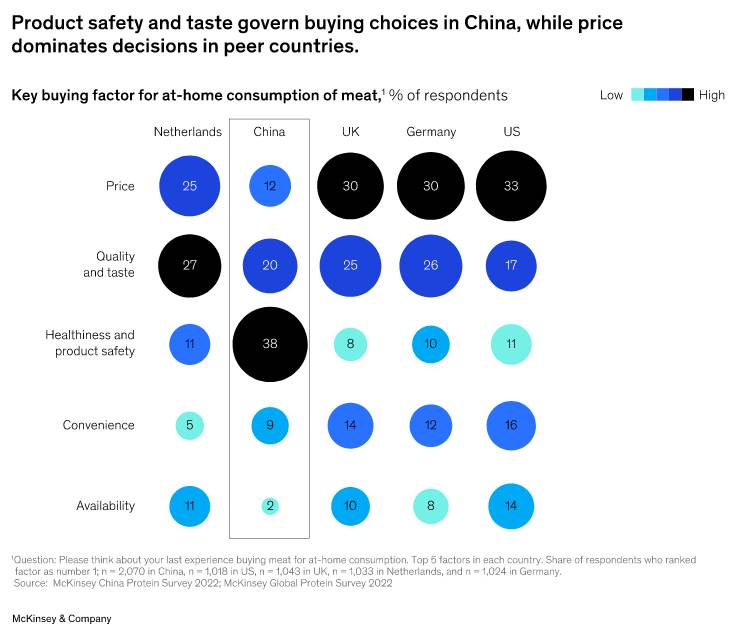We strongly believe at FUDZS that cultivated meat is a promising solution to help fighting climate change and to solve a part of all problems for actual livestock industries for human foods. But the success of this initiative hinges on one critical factor – consumer acceptance. Let’s talk about the public’s reception and the potential it holds for a greener future.
A key challenge in studying consumer attitudes towards cultivated meat is the nascent state of this technology. As of now, tasting cultivated meat is a privilege only a few have had, with it being commercially available just in Singapore. This factor complicates the process of gathering accurate quantitative data on consumer acceptance and preference. Though surveys and hypothetical scenarios provide some insight, they can’t fully capture the sensory experience and its influence on acceptance. As the technology matures and becomes more accessible, we can expect a richer body of data that will provide a more nuanced understanding of consumer attitudes towards this groundbreaking food innovation.
The acceptance of cultivated meat among consumers varies across demographics and geographies, painting a complex and multifaceted picture. Research has shown that psychological well-being can play a significant role in shaping consumer attitudes towards this alternative food source. A study conducted in Singapore, involving a representative sample of 948 adults, found a positive relationship between individuals’ psychological well-being and their willingness to consume cultivated meat. Interestingly, this willingness was further enhanced by the perception that cultivated meat is as healthy and nutritious as traditional meat, safe to consume, and beneficial to society. This highlights the importance of not only introducing sustainable food options, but also ensuring consumers understand the comprehensive benefits they offer.
In a more global context, a shift in attitudes towards lab-grown meat is becoming apparent. In the US and UK, approximately 80% of people have expressed a willingness to at least give lab-grown meat a try. Interestingly, a generational divide exists, with younger generations showing greater acceptance. The study found 88% of Gen Z, 85% of Millennials, 77% of Gen X, and 72% of Baby Boomers open to trying lab-grown meat in the future.
In China, a different trend emerged. A survey revealed that most people (93%) are curious to try cultivated meat, which is significantly higher than in the USA (76%). But a study from McKinsey shows that Chinese consumers are looking for healthiness and product safety. At the same time, European and American consumers are more sensible to price. This indicates that pricing could be a significant factor influencing consumer acceptance in certain markets, but not all.

However, acceptance isn’t universal or unconditional. Cultural norms, individual values, and demographics play a critical role. It’s important to note that the future is not set in stone. Although some experts express skepticism about substantial improvements by 2027, interventions, policies, and communication strategies can change consumer perceptions and acceptance. For instance, framing and priming could change customers’ explicit attitudes toward cultured meat significantly, showing the power of effective communication strategies.
The acceptance and growth of the cultivated meat industry signify a monumental shift in our approach to food production, reflecting the public’s growing consciousness towards sustainable choices. As the industry continues to evolve, it’s vital to rise to the challenges and ensure the mass-market product resembles conventional meat regarding cooking and sensory experiences. The future of sustainable meat production may indeed be within reach, with cultivated meat playing a pivotal role in this transition.
Sources :
- Higher well-being individuals are more receptive to cultivated meat: An investigation of their reasoning for consuming cultivated meat
- Lab Grown Meat Statistics and Facts 2023
- A Survey of Consumer Perceptions of Plant-Based and Clean Meat in the USA, India, and China
- For love of meat: Five trends in China that meat executives must grasp
